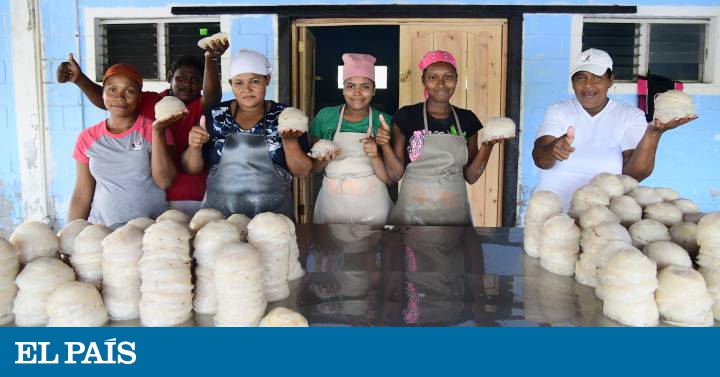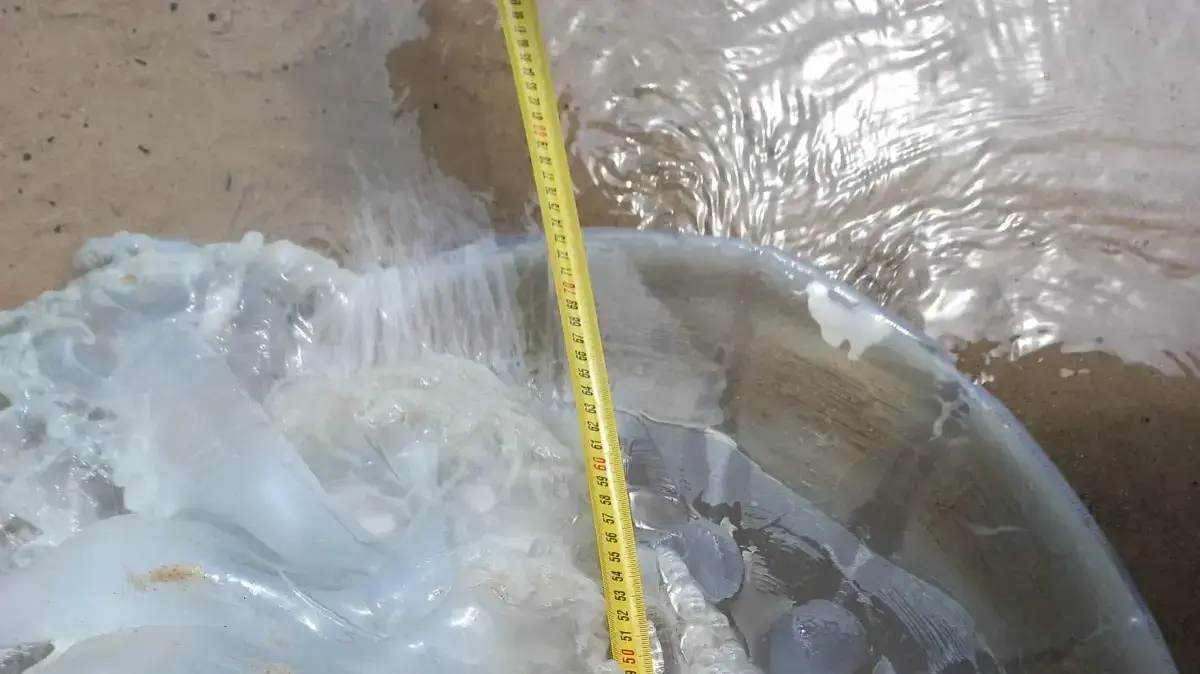For eight years, the children of Bessy Melado Wood have not lacked a single notebook.
And just a few months she managed to save enough to buy her own kayak and a cast net to catch lobster, shrimp and, above all, jellyfish.
Thanks to the collection and export of this small cnidarian, a second salary has entered the modest family of Melado.
And it is she who manages it.
She smiles on the other side of the screen, without hiding her joy: “I am very proud of what I have achieved”.
Like her, about 4,500 indigenous women from the La Muskitia region, northwest of Honduras, have for years boosted the local economy thanks to the Asian market that demands this product as a gourmet dish.
However, the coronavirus crisis has completely paralyzed sales abroad in the middle of the fishing season: “There have been jellyfish since August, but there are no buyers.
I don't know what we are going to do.
We depend on this ”, laments the fisherwoman.
MORE INFORMATION
PHOTO GALLERY Jellyfish that alleviate poverty
What Honduras would have to do to reach its full potential
In Honduras, malnutrition has a first and last name: Corredor Seco
In this small coastal town of 104,000 people, no one eats jellyfish.
14,000 kilometers away, in countries such as China, Japan and Korea, this animal is a select ingredient that is prepared both dry and tempered and in sauce.
"No, no, no", repeats Wendy Paulisto between laughs and with a notch of rejection impregnated on her face, "we have tried it by knowing what they eat there", explains the secretary of the board of directors of Pescadores de Medusa de Yaurabila.
"But here it is not typical," she acknowledges.
Luis Gradiz, coordinator of the Prawanka Aid in Action program for the development of La Muskitia, knows that low consumption is a positive factor: "Everything that is produced is exported."
These families sell an average of a thousand tons of jellyfish and generate the country about 2.5 million dollars annually.
More than two million euros.
The jellyfish business is the promise of the future and growth of one of the most impoverished regions of Honduras, which also suffers first-hand from the ravages of climate change.
In the Central American country, 76% of the population lives in a situation of poverty, according to a 2017 report by Ayuda en Acción.
This NGO has been promoting the development of minorities for three decades, which represent 12% of Hondurans.
For this reason, La Muskitia has been the main field of work.
It is the area with the greatest diversity of indigenous peoples and has a third of the country's natural resources.
However, it is a region traditionally abandoned by the Government, with 25% illiteracy and whose exploitation of natural wealth has barely reverted to its community.
"What do we live on if not the jellyfish?" The fisherwomen wonder.
The jellyfish business is not new to the area, but the indigenous leadership is.
Especially from the women of the Muskitia community
Their hands move on their own.
They tell step by step the meticulous process they carry out during the 105 days that the campaign lasts per year as if they had the animal in front of them.
“You have to separate the pinion from the hood and clean it well.
Thus, to remove the drool and the sand that remains inside ”, they explain between gestures.
Then they add alum, a sulfate that eliminates the venom of the jellyfish and allows its consumption, and later brine, a mixture of water and salt.
"We left it like that for at least 48 hours," says Melado.
It is dehydrated, packed and sent to the La Ceiba plant.
And from there it is exported to Asia and Europe.
Between what is fished on the Honduran coast and they are ready to be sent to the Beijing diner, about 15 days pass.
For each day, these women receive between seven and eight euros.
The jellyfish business is not new to the area, but the indigenous leadership is.
Especially from the women of the Muskitia community.
Gradiz is still surprised by how much everything has changed in recent years: “Before, oriental buyers came and there was a small producer.
Today there are 13 companies in the territory and all of them are run by indigenous families ”, he recounted by video call.
Ayuda en Acción takes care of the exploitation of 60% of the local production and is in charge of weaving the networks between entrepreneurs and coordinating them with the market: "Now they don't depend on whether the Asians come or not."
Jellyfish are "women's work"
For Wildres Rodríguez Wood, facilitator of the fishing chain promoted by Ayuda en Acción, the key is in their performance.
Their precision and speed in the "makeup" tasks made them better candidates than men.
They are in charge of fishing and, once they step on dry land, the jellyfish are "women's work": "Many of them are single mothers, wives of disabled divers or heads of households ... They carry their daily sustenance and feel that they are doing something for the future of their families.
That excites them ”.
Money management is also different in their hands.
"When the men were the ones who charged, what was left over from drinking or gambling would come home," says Rodríguez, "Since they dose it, many children can study, eat and live in better conditions."
Paulisto has been working with the jellyfish for five years and his daughters, aged five and three, are already using the technique: “It is something they have seen since they were born.
It would be a pride for me if they continue with the tradition ”, he acknowledges.
However, everything is stopped.
These first days of the most unusual September that they remember, uncertainty permeates everything.
Paulisto and Melado are now looking for alternative outlets in the local business and in the sale of other fish and shellfish to survive.
But it is not easy.
The view is on the calendar.
The days continue to pass while the economic engine of La Muskitia awaits the green light from the Government and its new regulations to start again.
"They can't forget about us," Melado pleads.
You can follow PLANETA FUTURO on Twitter and Facebook and Instagram, and subscribe to our
newsletter
here
.






